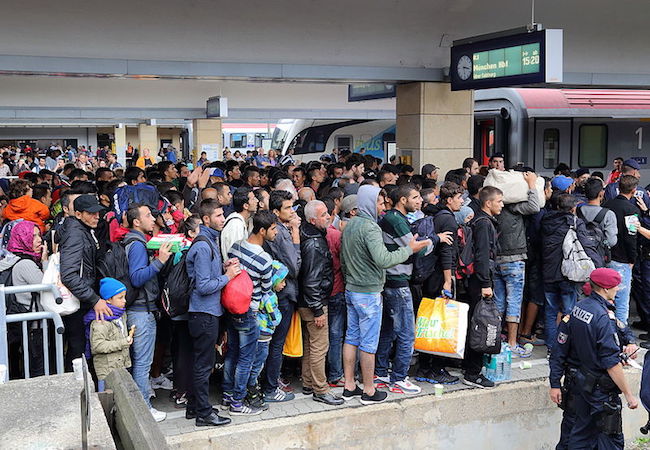
By Rene Wadlow
20 June is the UN-designated World Refugee Day marking the signing in 1951 of the Convention on Refugees. The condition of refugees and migrants has become a “hot” political issue in many countries, and the policies of many governments have been very inadequate to meet the challenges. The UN-led World Humanitarian Summit held in Istanbul, Turkey 23-24 May, 2016 called for efforts to prevent and resolve conflicts by “courageous leadership, acting early, investing in stability, and ensuring broad participation by affected people and other stakeholders.”
If there were more courageous political leadership, we might not have the scope and intensity of the problems that we now face. Care for refugees is the area in which there is the closest cooperation between non-governmental organizations (NGOs) and the UN system. As one historian of the work of the United Nations High Commissioner for Refugees (UNHCR) has written “ No element has been more vital to the successful conduct of the programmes of the UNHCR than the close partnership between UNHCR and the non-governmental organizations.”
The 1956 flow of refugees from Hungary was the first emergency operation of the UNHCR. The UNHCR turned to the International Committee of the Red Cross and the League of Red Cross Societies which had experience and the finances to deal with such a large and unexpected refugee departures and resettlements. Since 1956, the UNHCR has increased the number of NGOs, both international and national, with which it works given the growing needs of refugees and the increasing work with internally displaced persons who were not originally part of the UNHCR mandate.
Along with emergency responses − tents, water, medical facilities − there are longer-range refugee needs, especially facilitating integration into host societies. It is the integration of refugees and migrants which has become a contentious political issue. Less attention has been given to the concept of “investing in stability”. One example:
The European Union (EU), despite having pursued in words the design of a Euro-Mediterranean Community, in fact did not create the conditions to approach its achievement. The Euro-Mediterranean partnership, launched in 1995 in order to create a free trade zone and promote cooperation in various fields, has failed in its purpose. The EU did not promote a plan for the development of the countries of North Africa and the Middle East and did nothing to support the democratic currents of the Arab Spring. Today, the immigration crisis from the Middle East and North Africa has been dealt with almost exclusively as a security problem.
The difficulties encountered in the reception of refugees do not lie primarily in the number of refugees but in the speed with which they have arrived in Western Europe. These difficulties are the result of the lack of serious reception planning and weak migration policies. The war in Syria has gone on for six years. Turkey, Lebanon and Jordan, not countries known for their planning skills, have given shelter to nearly four million persons, mostly from the Syrian armed conflicts. That refugees would want to move further is hardly a surprise. That the refugees from war would be joined by “economic” and “climate” refugees is also not a surprise. The lack of adequate planning has led to short-term “conflict management” approaches. Fortunately NGOs and often spontaneous help have facilitated integration, but the number of refugees and the lack of planning also impacts NGOs.
Thus, there is a need on the part of both governments and NGOs to look at short-term emergency humanitarian measures and at longer-range migration patterns, especially at potential climate modification impact. World Refugee Day can be a time to consider how best to create a humanist, cosmopolitan society.




